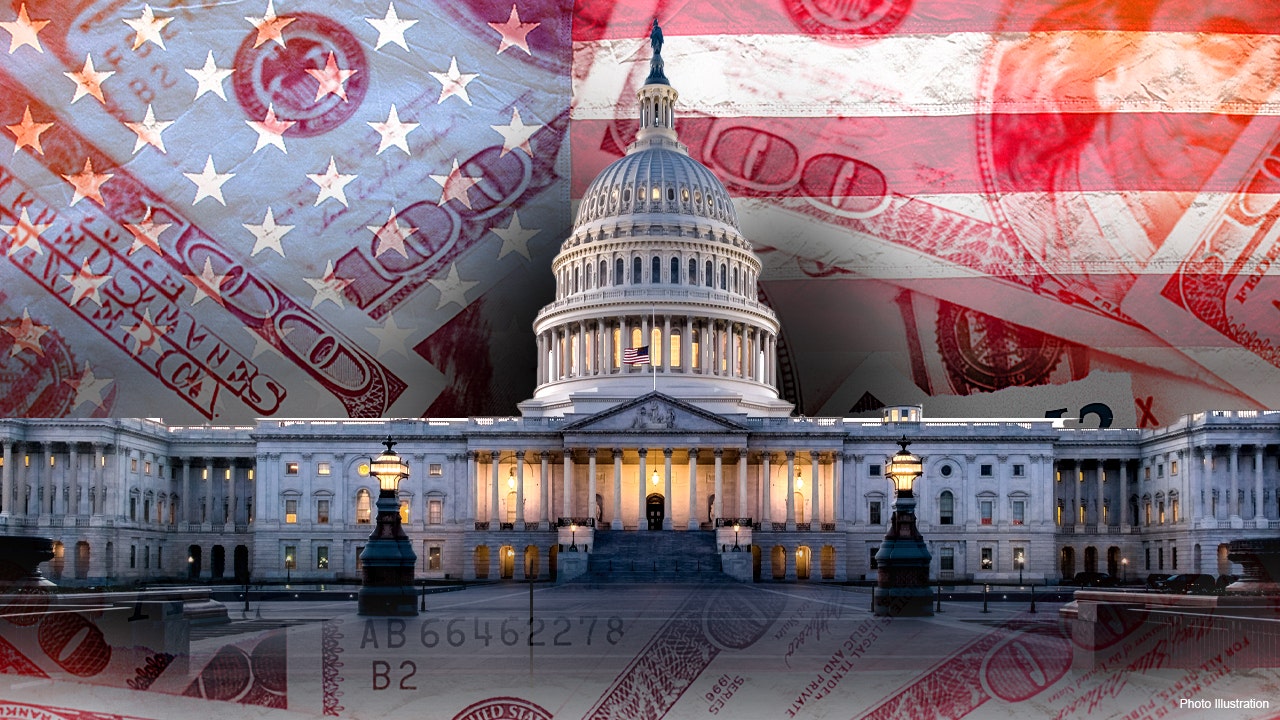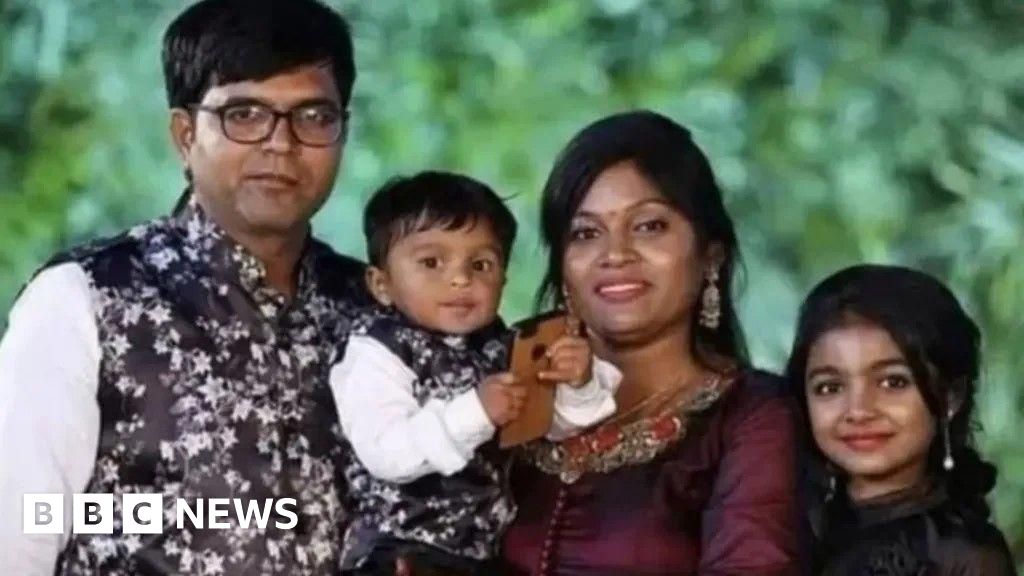World
Middle East crisis live: Lebanon says only US can end war as Israel launches new attacks on country’s south

US only country that can end war, Lebanon says, as number of displaced climbs to 500,000
Lebanon’s foreign minister has suggested the US is the only country that can end the conflict between Israel and Hezbollah and expressed disappointment in President Joe Biden’s response so far. In remarks reported by Agence France Presse, Abdallah Bou Habib, said of Biden’s speech to the UN on Tuesday:
It was not strong, it is not promising, and it would not solve the Lebanese problem … We are still hoping. The United States is the only country that can really make a difference in the Middle East and with regard to Lebanon.
Making a valedictory address to the UN general assembly, the US president, Joe Biden, urged Israel against an all-out war, but blamed the Iranian-backed Lebanese militia for an unprovoked attack on Israel after 7 October and for continuing to strike Israel since.
Biden said the US was working tirelessly on a deal that would enable the populations on the Lebanese-Israeli border to return to their homes, but Iranian diplomats said they had been told through third parties that the US administration had admitted it was powerless to stop the Israeli bombardment.
Bou Habib also said that the number of displaced Lebanese, which had numbered about 110,000 since 7 October and before Israel’s latest offensive this week, was now probably “approaching half a million”.
Noting that Israel had also seen displacement in the northern areas, he said, “All for what?”
Bou Habib also said he was convinced that Iran did not want conflict.
“I don’t think they want to be involved in a war,” he said.
Key events
Imran Khan, reporting for Al Jazeera from Marjayoun in Lebanon, has said “Overnight there were way more airstrikes than I’ve seen in previous days. There was also a barrage of outgoing Hezbollah fire. This was just in the area where I am. If you can imagine this is probably a microcosm of what is going on across the southern Lebanese border. The Israeli army say they are continuing to strike Hezbollah targets. And Hezbollah is actually ramping things up slightly and we are seeing a lot more outgoing rocket attacks than we’ve seen perhaps in the last 24 hours.”
Al Jazeera has been banned from operating inside Israel, and Israeli authorities have raided and shut down the news network’s Ramallah office in the Israeli-occupied West Bank.
Israel’s military has claimed to have intercepted “a UAV approaching from the east … crossing into Israeli territory from Syria.”
It added “The UAV was intercepted by IDF fighter jets south of the Sea of Galilee. No damage or injuries were reported.”
The claims have not been independently verified.
The UN agency for Palestinian refugees is bracing for a triple crisis as Israeli strikes on Lebanon add to the strain it is facing in Gaza and the West Bank, its chief has told AFP.
Unrwa, founded in 1949, provides services, including education and healthcare, for Palestinian refugees in Gaza, the Israeli-occupied West Bank, Lebanon, Syria and Jordan.
With three of its area of operations turning into “active frontlines,” the embattled agency already grappling with a severe financial shortfall is poised to come under even more pressure, said Unrwa’s Commissioner-General Philippe Lazzarini.
“We already have Gaza, we already have the West Bank, so we have two fields of operation which have become active frontlines,” he said.
“We (now) also have Lebanon, which would mean that basically three… contexts of operation will become humanitarian emergencies,” he added, calling the situation a “triple tragedy.”
Faced with mounting Israeli strikes, Unrwa has paused some operations in Lebanon as it converts its schools into shelters for hundreds of people displaced from the south of the country.
“The fear is that… we are going into a full-fledged war,” Lazzarini told AFP. “Another concern is that parts of Lebanon becomes like Gaza.”
Israeli media is reporting that Benjamin Netanyahu is still planning to attend the UN general assembly in New York, but has adjusted his itinerary after Israel this week stepped up its assault on Hezbollah in Lebanon. The Israeli prime minister will now fly out to New York on Thursday and board a return flight on Saturday night.
The decision has been openly criticised by an unnamed senior official in the government on Channel 12 news in Israel, who called it “reckless and irresponsible” for Netanyahu to travel in person, when the speech could be delegated to a diplomat.
In the last few minutes Israel’s military reported that sirens have again sounded in northern Israel.
A mother and her four children were killed by an Israeli airstrike near the city of Rafah, in southern Gaza late Tuesday, the Palestinian news agency Wafa has reported, as Israel continued its onslaught on the devastated enclave.
Wafa said the family were killed when Israeli warplanes targeted a house belonging to the Abu Jazar family in an-Nasser town, north-east of Rafah, and reported that others were also injured.
It was not possible for the Guardian to verify their deaths as Israel does not allow foreign journalists into the Strip.
Hezbollah has confirmed that it fired a rocket targeting the Mossad’s headquarters outside Tel Aviv early Wednesday. Hezbollah has blamed the Mossad for carrying out last week’s pager and walkie-talkie attacks in Lebanon, in which 42 people including children were killed and thousands injured.
Sirens had sounded in Tel Aviv early on Wednesday, sending residents to bomb shelters, though no casualties or damage was reported.
The Israeli military later said it had intercepted a surface-to-surface missile crossing from Lebanon.
US only country that can end war, Lebanon says, as number of displaced climbs to 500,000
Lebanon’s foreign minister has suggested the US is the only country that can end the conflict between Israel and Hezbollah and expressed disappointment in President Joe Biden’s response so far. In remarks reported by Agence France Presse, Abdallah Bou Habib, said of Biden’s speech to the UN on Tuesday:
It was not strong, it is not promising, and it would not solve the Lebanese problem … We are still hoping. The United States is the only country that can really make a difference in the Middle East and with regard to Lebanon.
Making a valedictory address to the UN general assembly, the US president, Joe Biden, urged Israel against an all-out war, but blamed the Iranian-backed Lebanese militia for an unprovoked attack on Israel after 7 October and for continuing to strike Israel since.
Biden said the US was working tirelessly on a deal that would enable the populations on the Lebanese-Israeli border to return to their homes, but Iranian diplomats said they had been told through third parties that the US administration had admitted it was powerless to stop the Israeli bombardment.
Bou Habib also said that the number of displaced Lebanese, which had numbered about 110,000 since 7 October and before Israel’s latest offensive this week, was now probably “approaching half a million”.
Noting that Israel had also seen displacement in the northern areas, he said, “All for what?”
Bou Habib also said he was convinced that Iran did not want conflict.
“I don’t think they want to be involved in a war,” he said.
Opening summary
Hello and welcome to the Guardian’s live coverage of the conflict in the Middle East.
Israel has launched a series of fresh strikes on southern Lebanon, Lebanese media reported early Wednesday, the third consecutive day of a major Israeli assault on its northern neighbour in which hundreds of Lebanese have been killed.
“Since 5am enemy warplanes have launched strikes” on several areas of southern Lebanon, the official National News Agency reported, adding that there were unspecified casualties. Israel confirmed its attacks, saying it had targeted Hezbollah.
It also reported that “enemy warplanes and drones” had targeted multiple locations the Baalbek area in eastern Lebanon’s Bekaa Valley after midnight, also reporting casualties there. At least two dozen people were killed by Israeli attacks targeting the militant group Hezbollah on Lebanon on Tuesday, bringing the death toll since Monday, when Israel killed hundreds of people in strikes across the country, to 569, including at least 50 children.
In Israel, sirens sounded in Tel Aviv and the Israeli military said it had intercepted a missile crossing from Lebanon. No damage or casualties were reported.
On a trip to the US, the Lebanese foreign minister meanwhile voiced disappointment with US President Joe Biden’s response to the Israeli offensive, but nevertheless said only the US could bring an end to the conflict.
“It was not strong. It is not promising and it would not solve this problem,” Abdallah Bou Habib during a virtual event hosted by the Carnegie Endowment for International Peace, referring to Biden’s speech at the United Nations earlier in the day.
“I [am] still hoping. The United States is the only country that can really make a difference in the Middle East and with regard to Lebanon.”
More on that soonest. In other developments:
-
Thousands of Lebanese people fled the continuing bombing in the country’s south on Tuesday as Israel said it was conducting “extensive strikes” on Hezbollah targets, including on the southern suburbs of Beirut, for the second day in a row and third time this week. Israel carried out an airstrike in Jiyeh, a seaside town 20 kilometers south of Beirut late Tuesday night. The strong explosion was heard across Beirut and the surrounding mountains.
-
Hezbollah confirmed that an Israeli attack in Dahieh, Hezbollah’s stronghold in Beirut, on Tuesday had killed Ibrahim Muhammad Qubaisi, also known as Abu Issa, the commander of Hezbollah’s rocket and missile division. Lebanon’s health ministry said in a statement that the “Israeli enemy raid on Ghobeiri in Beirut’s southern suburbs killed six people and injured 15”.
-
The Israeli prime minister, Benjamin Netanyahu, vowed to maintain the offensive against Hezbollah and said the group’s leader, Hassan Nasrallah, was leading Lebanon “to the edge of the abyss”. Israeli officials have said the recent rise in airstrikes on Hezbollah targets in Lebanon is designed to force the group to agree to a diplomatic solution, cease its own attacks on Israel or unilaterally withdraw its forces from close to the contested border.
-
Israel Defense Forces (IDF) spokesperson Daniel Hagari said Israel was striving for its current military campaign against Hezbollah in Lebanon to be as short as possible. But in his briefing with reporters on Tuesday, he added that Israel is also prepared for the operation to take time. Israel’s defence minister, Yoav Gallant, said Hezbollah has suffered “extremely severe blows” and Israel has “more strikes ready”.
-
Hezbollah said it had targeted several Israeli military targets including an explosives factory about 35 miles (56km) into Israel and the Megiddo airfield near the town of Afula, which it attacked three separate times. Officials in Israel said more than 50 missiles and rockets were fired from Lebanon into northern parts of the country on Tuesday morning, most of which were intercepted.
-
Syrian air defences intercepted suspected Israeli missiles targeting the city of Tartous, Reuters reported, citing Syrian army sources. It comes after reports of multiple explosions heard over the Mediterranean port city early on Wednesday.
-
The UN secretary general, António Guterres, has told world leaders that Lebanon is on the brink of becoming a second Gaza, adding the crisis has “become a non-stop nightmare that threatens to take the whole region down”. In response, Israel’s defence minister, Yoav Gallant, accused the UN on Tuesday of not fulfilling its obligations in preventing rocket attacks into Israel by Hezbollah.
-
The EU’s foreign policy chief, Josep Borrell, described the escalating conflict between Israel and Hezbollah as almost a “full-fledged war”. World leaders gathered in New York for the opening of the 79th UN general assembly as diplomatic efforts appear to have had little impact so far on the tensions on the border between Israel and Lebanon.
-
Israel’s ambassador to the UN, Danny Danon, said his country is open to ideas for de-escalating the conflict in Lebanon. “We are not eager to start any ground invasion anywhere … We prefer a diplomatic solution,” Danon told reporters on Tuesday.
-
Two staff members of the UN’s refugee agency (UNHCR) were among the 558 people killed in Lebanon on Monday, the UN high commissioner for refugees, Filippo Grandi said. The UN agency said it was “outraged and deeply saddened by the killing of two beloved members of the UNHCR family in Lebanon” and warned that the protection of civilians is a must under international humanitarian law.
-
Nearly 30 Palestinians were killed in Israeli airstrikes in Nuseirat and Bureij camp refugee camps in central Gaza on Tuesday, according to hospital officials. A total of 29 Palestinians, including 14 children and 6 women, died as a result of the Israeli strikes on Tuesday, officials at Awda hospital said.
-
The US president, Joe Biden, addressed the risk of a potential full-scale war in Lebanon. During an address to the United Nations general assembly on Tuesday, Biden said that a “full-scale war is not in anyone’s interest” and added that “even though the situation has escalated, a diplomatic solution is still possible.”
-
Britain is moving 700 troops to Cyprus to be ready for an emergency evacuation of UK citizens from Lebanon. The UK prime minister, Keir Starmer, called for “restraint and de-escalation” at the border between Lebanon and Israel. Starmer made an unfortunate slip-up during his Labour party conference speech on Tuesday, calling for the return of “sausages” from Gaza.
-
The Turkish president, Recep Tayyip Erdoğan, called for coercive UN measures against Israel to be put on the agenda, including the use of force against Israel. Erdoğan, in his UN general assembly speech, accused the US of continuing to arm Israel so it can continue its massacres when in public it pretends it is looking for a ceasefire.










